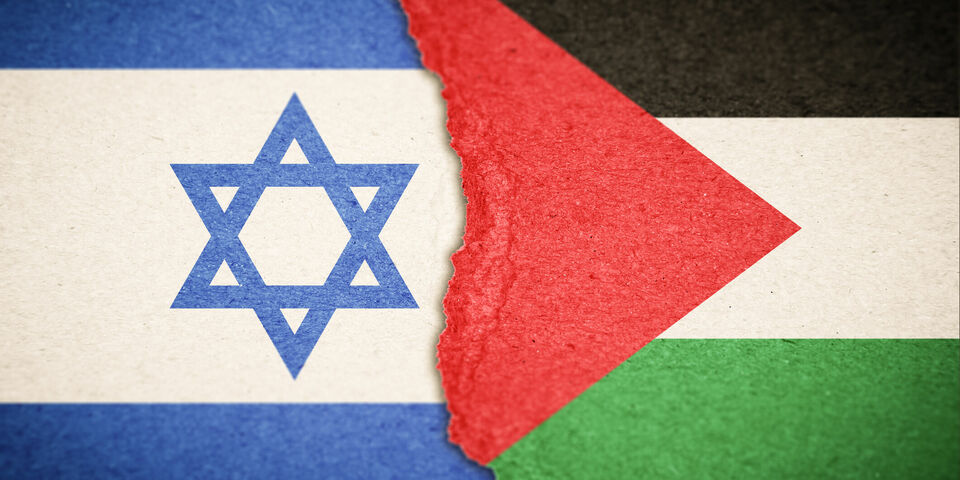TU/e makes U-turn in collaborations with Israeli parties
TU/e is freezing institutional collaboration with Israeli university Technion. By July 15, it will also have set up a committee to assess sensitive collaborations. The Executive Board announced this on Monday during the University Council meeting.
The university board says it’s responding to growing unease within its own organization due to the ongoing and worsening human rights violations by the Israeli government in Gaza. While pro-Palestinian demonstrators have set up camp on the lawn between Atlas and Matrix, Executive Board President Koen Janssen addresses the University Council.
“We believe that unbridled collaboration with Israeli partners, especially those with strong ties to the Israeli defense sector, leads to moral complicity. What makes our position precarious is that TU/e collaborates extensively with Israeli partners. Our most notable connection is the institutional collaboration with Technion University.”
For this reason, the board decided to freeze institutional collaboration with Technion and to set up a committee by July 15 whose first order of business, once installed, is to assess existing collaboration projects and programs with Israeli universities and companies. In the meantime, TU/e won’t enter into any new institutional partnerships.
This new position constitutes quite a U-turn. Recently, the board indicated that it didn’t want to change its collaborations with Israeli universities. Nevertheless, Janssen again emphasizes that ‘none of the projects are of a military nature or aimed at defense applications.’ “We therefore have no doubts about the moral integrity of these projects in terms of their scientific content.”
Positive, but concerned
The University Council’s response to the revised position has generally been positive. However, there are some concerns about the implementation of the decision. Reference is made to other universities that set up ethics committees and, for various reasons, haven’t yet achieved any results. Janssen promises, on behalf of the board, to be transparent about the progress of the investigation.
Critical questions aren’t asked by the council, but by the audience, which includes some of the pro-Palestine demonstrators. When one of them speaks up, it’s quickly made clear to him that the public isn’t supposed to participate in the meeting. For a moment, the group seems to want to disrupt the meeting, until the chair of the University Council suggests that they share their questions with a member of the council, who can then submit them to the board at a later time.
Step in the right direction
Meanwhile, the protesters have announced – through their spokesperson – that they’re cautiously celebrating the Executive Board’s decision. “We believe the board is taking a step in the right direction by recognizing our university’s ethical responsibility with regard to human rights violations.”
There’s not only optimism, but also skepticism within the group. “The presence of the new committee doesn’t automatically mean that the ties with all institutions involved in genocide will be severed.” The protesters are continuing their campaign to gain support for cutting all ties with Israeli and fossil fuel companies.


Discussion